المصادر
تصدر المبادرة العالمية للعدالة و الحقيقة و المصالحة و بشكل منتظم منشورات لمشاركة بعض الدروس المستفادة من أعمالها حول العالم. و تقدّم هذه الكتيبات المعدّة خصّيصًا للممارسين و الأكاديميين و النشطاء استراتيجيات و أدوات ملموسة لإعانة الناجين من النزاعات الأخيرة على التعافي من الصدمات النفسية التي تعرضوا لها و مساعدة مجتمعاتهم في كسر دورات العنف.
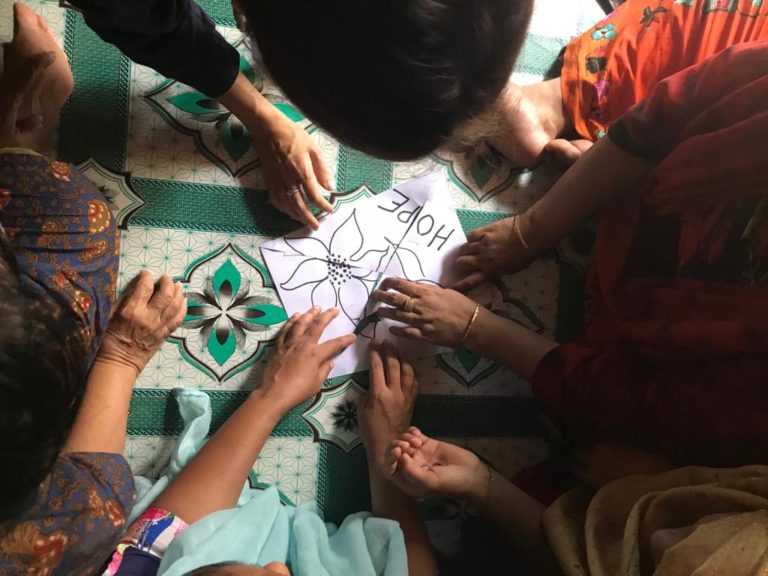
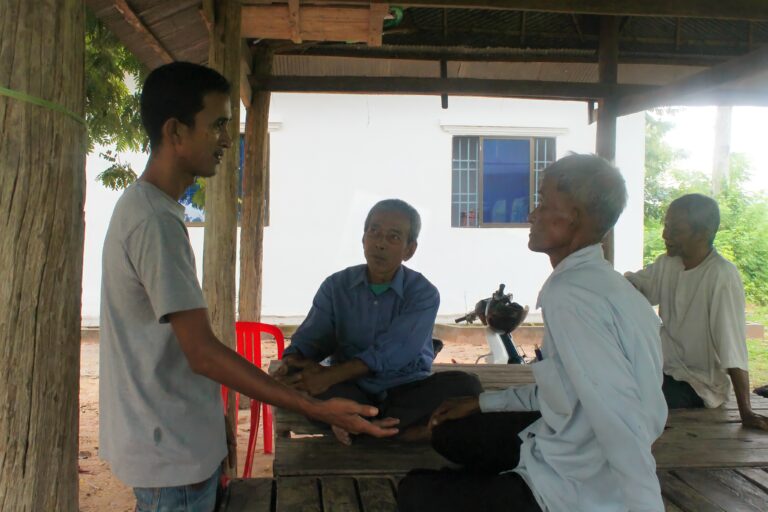
المحفوظات الحية
تم تطوير هذه الوثيقة كأداة لدعم منظمات المجتمع المدني في كولومبيا في تطوير المحفوظات الشفوية وفي تنظيم مجموعاتها الأرشيفية. وهو مستمد من خبرة شركاء الفريق في لجنة الخدمة المدنية الدولية ولجنة بناء السلام ، وأعضاء لجنة الخدمة المدنية الدولية. يسلط هذا الدليل العملي الضوء على المبادئ الأساسية في تطوير المحفوظات الشفوية بناء على المقابلات ، وفي تنظيم أرشيفات وثائق حقوق الإنسان. يركز القسم 1 على تطوير المحفوظات الشفوية ، ويقدم القسم 2 نصائح أساسية حول الخطوات الأولى لمساعدة منظمات المجتمع المدني على تنظيم أرشيفاتها.
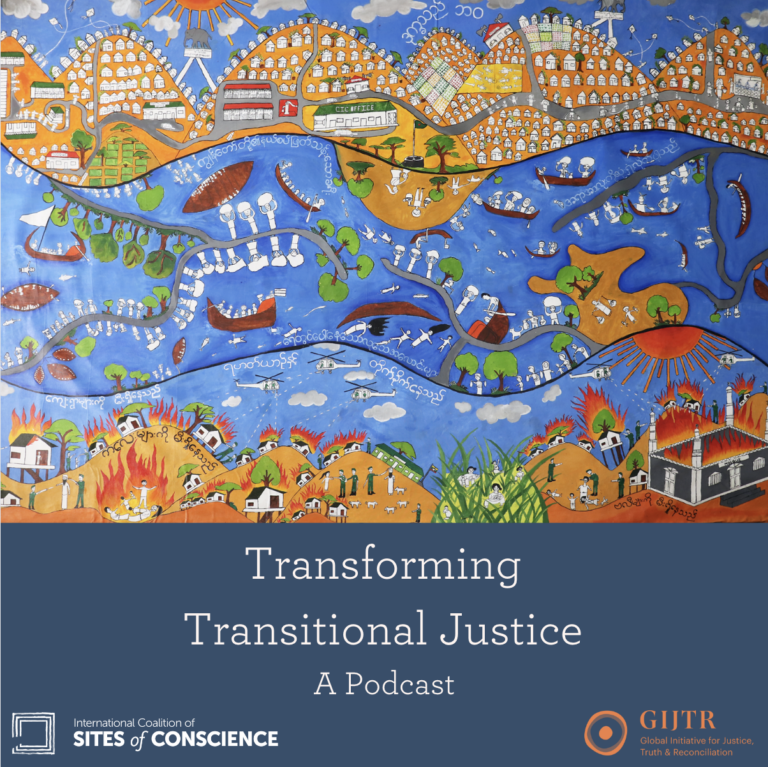
جعلها جديدة
تهدف مجموعة الأدوات هذه ، التي نشرت في أغسطس 2021 ، إلى دعم المجتمع المدني بشكل عام ، مع استيعاب احتياجات وسياقات الشركاء المحليين الذين يعملون مع المبادرة العالمية للعدالة والحقيقة والمصالحة. ومن هذا المنطلق ، فإنه يولي اهتماما خاصا لإنشاء وتبادل حملات الدعوة التي تزيد من أصوات الناجين وتلبي الاحتياجات الشاملة للمجتمعات الخارجة من الصراع. تقدم مجموعة الأدوات هذه أيضا اقتراحات للتنقل في المضاعفات الشائعة في إعدادات ما بعد الصراع ، بما في ذلك المخاوف الأمنية والمحرمات حول مناقشة التواريخ المؤلمة. الغرض منه هو أن يكون دليلا موجزا ، ويقدم المشورة العامة بشأن تطوير وتنفيذ وإطلاق حملات الدعوة.

#SurvivorsKnowBest
في نوفمبر 2021 ، أطلقت المبادرة العالمية للعدالة والحقيقة والمصالحة (GIJTR) و Amplifier ، وهو مختبر تصميم غير ربحي يجمع الفنانين والناشطين ، حملة مناصرة لمساعدة المجتمعات في جميع أنحاء العالم التي هي في الصراع أو الخارجة من الصراع من خلال تعزيز المصالحة من خلال قصص الناجين. بمساعدة من ثلاثة فنانين ، كاميلا روزا ، توماس ويمبرلي ، ونورول ياقين ، نحن نوفر 20 صورة مجانية قابلة للتنزيل بست لغات لتعزيز المصالحة من خلال قصص الناجين. وتستند الصور إلى ستة مواضيع رئيسية-الاستماع إلى الناجين ؛ الحقيقة والعدالة ؛ السلام وعدم التكرار ؛ الذاكرة والمصالحة ؛ المفقودين والمختفين ؛ وحقوق المرأة-وتتميز بأشخاص ورموز خيالية تمثل مجتمعات من أفريقيا وآسيا وأمريكا اللاتينية والشرق الأوسط.

اجعلها جديدة
ي َ مكن مجموعة األدوات هذه أن تعود َ بمنافع ّ جم ٍ ة على منظمات المجتمع المدني بشكل ّ عام،ٍ َ كي تستجيب ّ للحاجات والسياقاتِ وهي، في الوقت ِ عينه ِ ، قد ص َيغ ٍ ت على نحو ُ م ّ بس ٍط وواضحّ َ ذين يعملون ٍ عن كثب ّ والمبادرة العالمية للعدالة والحقيقةّ الخاص ٍّ ة بكل ّ من الش ّ ركاء المحليين الً خاصة إلعداد ونشر حمالتِ ي مجموعة األدوات عنايةُ والم ّ صالحة. وفي هذا الصدد، تولّ ّ اجين وتلبية االحتياجات الكلية للمجتمعاتِ ِ بأصوات النّ تي من شأنها اإلجهارُ المناصرة الّ الخارجة من النزاعات، باإلضافة إلى تقديم االقتراحات اآليلة إلى التعالي على التعقيدات الشائعةّ َ زاع، بما في ذلك ّ الهواجس األمني ُ ة وتحريم ّ تناول األحداث التاريخيةِ في سياقات َ ما بعد النَ دلي ًل ً موجز ُ ا ي ً سدي مشورةّ خذُ تُ ِش َرت مجموعة األدوات هذه في العام 2021 لت المؤلمة. لقد نُ ِ لح َقتّ عام ِ ة في مسألة ِ إعداد ُ حمالت الم ٍّ ناصرة وتنفيذها وإطالقها على حد سواء.
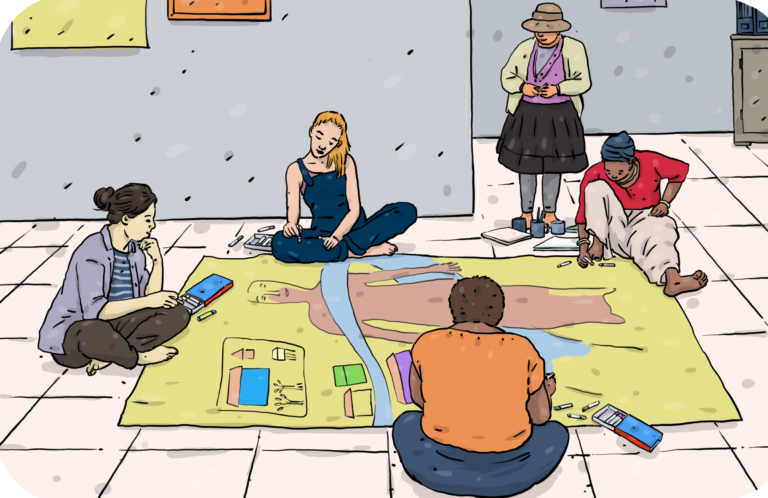
مجموعة أدوات لتخليد الذكرى في مجتمعات ما بعد الصراع
في جميع المجتمعات، نقوم بأنشطة تذكارية لحفظ الذاكرة التاريخية المتعلقة بالأحداث الصادمة مثل النزاعات و الإبادة الجماعية و المجاعات و الطاعون و عواقب أزمة إنسانية خطيرة و غير ذلك. و يستند هذا الدليل إلى عمل مواقع الضمير – المواقع التاريخية و متاحف التاريخ و مبادرات الذاكرة التي تربط نضالات الماضي بحركات اليوم من أجل العدالة الاجتماعية – لتقديم أمثلة ملهمة و مبتكرة و ثرية بالمعلومات لتخليد الذكرى، تقوم بتسليط الضوء على الطرق التي يمكن من خلالها استخدام الذاكرة في عالم ما بعد الصراع لتشكيل مستقبل أكثر سلامًا.

مجموعة أدوات الحوار حول العنف و الوقاية منه
التواصل الفعال ضروري إذا أرادت المجتمعات في جميع أنحاء العالم معالجة التواريخ الصعبة و بناء مستقبل أكثر عدلًا و سلمًا. و تشارك مجموعة الأدوات هذه استراتيجيات لتسهيل الحوارات التي تجمع ما بين الأفراد و المنظمات و المجتمعات لأغراض التعلم الفردي و الجماعي. أما المعلومات فهي مستمدة من التجربة المباشرة للتحالف الدولي لمواقع الضمير، و تركز على أهمية الفهم الدقيق للثقافات و المواقف المحلية من خلال دمج الدروس المستفادة من منظمات المجتمع المدني و المعلمين في جميع أنحاء غينيا و ساحل العاج.

العدالة الانتقالية و المرأة
تهدف مجموعة الأدوات هذه إلى استكشاف تعددية الأدوار التي تضطلع بها المرأة أثناء النزاع و فترات الحكم الاستبدادي، و كذلك كيفية تأثير هذه الأدوار على احتياجات المرأة بعد الصراع؛ و تسليط الضوء على الطرق التي شاركت بها النساء في عمليات العدالة الانتقالية و أثر مشاركتهن؛ و التحقيق في العقبات التي تحول دون إشراك المرأة في عمليات العدالة الانتقالية؛ و تبادل التوصيات من المنظمات الشعبية التي تقودها المرأة لإدماج المرأة بشكل هادف في عمليات العدالة الانتقالية. كما تنظر مجموعة الأدوات في مجموعة واسعة من السياقات، بما في ذلك سيراليون و غامبيا و سريلانكا و الجزائر و غواتيمالا.

فهم و معالجة انتهاكات الحقوق الاقتصادية و الاجتماعية و الثقافية في العدالة الانتقالية
صُمّمت مجموعة أدوات التقييم هذه لمنظمات المجتمع المدني و الناشطين الذين يعملون على معالجة الأسباب الاجتماعية و الاقتصادية و غيرها من الأسباب الجذرية للنزاع في عمليات العدالة الانتقالية لما بعد الصراع على المستويين المحلي و الوطني. فهي تزود المستخدمين بالأدوات التي يحتاجونها لإجراء بحث موثوق و شامل في انتهاكات الحقوق الاقتصادية و الاجتماعية و الثقافية التي ساهمت في النزاع و حدثت خلاله، كما تساعدهم على العمل جنبًا إلى جنب، و بين المجتمعات المحلية و الحكومات الوطنية، لاتخاذ قرارات مستنيرة حول ما يمكن أن توفره آليات العدالة الانتقالية من حيث الإنصاف و التعويض الأنسب على تلك الانتهاكات.

Transforming Transitional Justice
Transforming Transitional Justice: A Decade of Change, Growth and Sustained Impact, highlights the many, often intersecting, ways that GIJTR revolutionizes traditional approaches to transitional justice through its flexible and context-specific lens—one that prioritizes the experiences and expertise of survivors and post-conflict communities by building their capacity to lead local and national initiatives that demand accountability, secure rights for all and foster more peaceful and just societies.

State of Truth in the World Report
The State of Truth in the World Report is an in-depth review of global developments related to truth. Using a dual thematic and country-specific lens, it considers access to truth, the resources available to support truth and justice initiatives and existing constraints on truth in 18 countries. It also examines how truth is affected in particular ways through four main themes: conflict, gender identity and sexual orientation, locally led approaches and COVID-19.
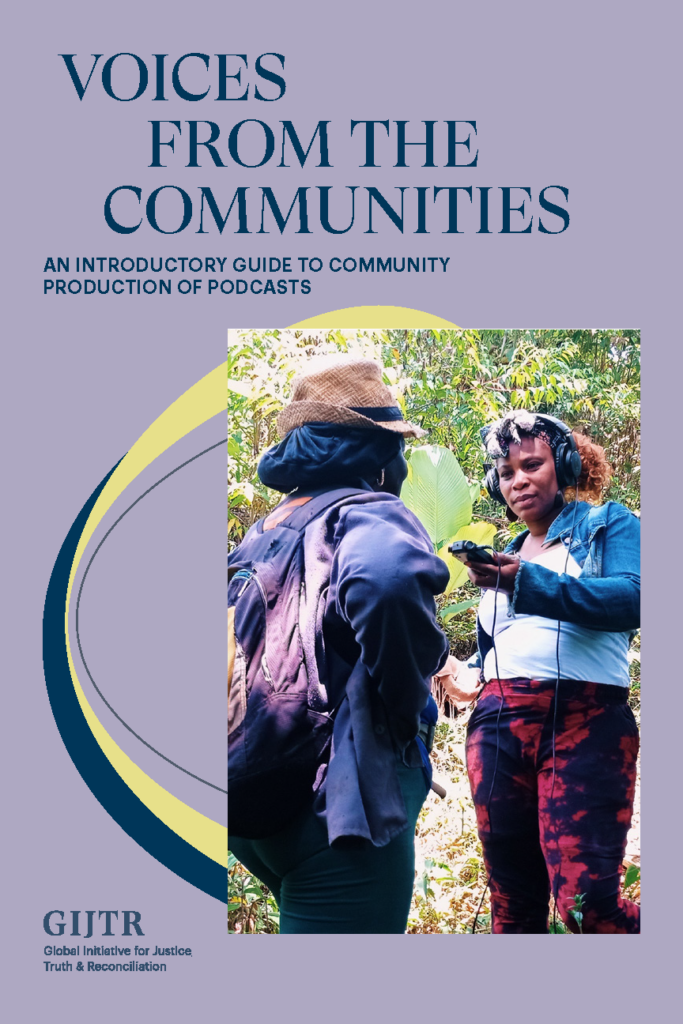
Voices of the Communities
This guide aims to introduce readers to the world of podcasts and how this format can become a tool for telling stories. We will present the different stages involved in creating a podcast, but not with the intention of training producers (although we would be honored if that happens). Rather, we want to detail how communities’ local knowledge and expertise are crucial to bringing a podcast to fruition. More importantly, this guide will hone the narrative and creative skills of those who want to tell their own stories and circulate them beyond their communities. We believe that it is not enough to tell stories but that you have to learn to tell them well. A well-told story becomes a tool for social change and is a credit to the protagonists while doing justice to the complexities of their own lives.
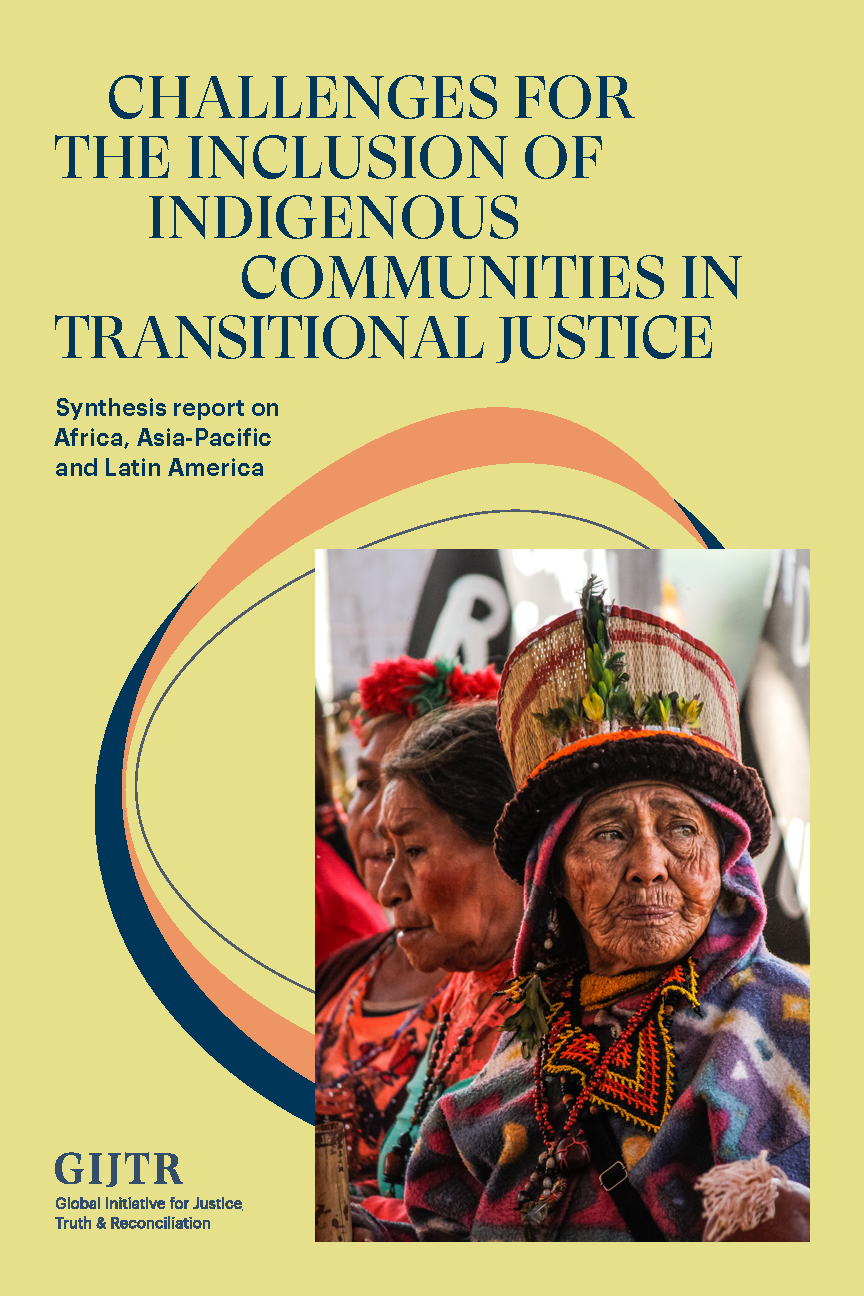
Challenges for the Inclusion of Indigenous Communities in Transitional Justice
This report summarizes findings, learned lessons and recommendations regarding the participation of indigenous peoples in transitional justice processes based on case studies and field research conducted in Australia, Brazil, Chile, Colombia, Democratic Republic of Congo, Guatemala, Indonesia, Kenya, Morocco, Nepal, Nigeria, Peru, Philippines, Rwanda, Sierra Leone and South Sudan. The cases examined call for a decisive integration of the framework of Indigenous peoples’ rights and Indigenous leadership within transitional justice, decolonizing its approaches, broadening its historical perspective, and enhancing its capacity to shape profound political transformations in modern states.
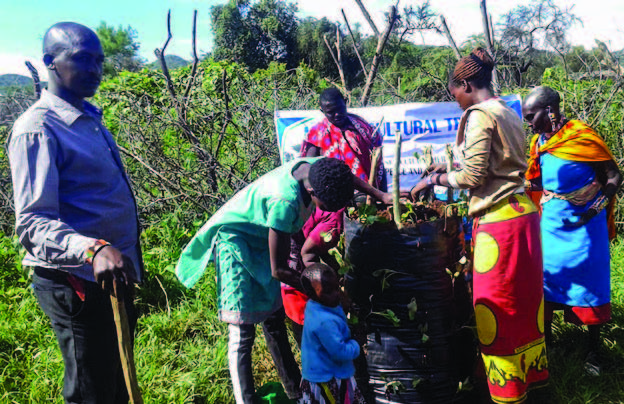
Transitional Justice and Indigenous Peoples
This report shows both the limitations and the possibilities for constructive interaction between the field of transitional justice and the normative framework of Indigenous rights. Broadening the field of transitional justice potentially includes the understanding of, and action on, the continuing territorial dispossession and harassment of Indigenous peoples. The case examined call for a decisive integration of the framework of Indigenous peoples’ rights and Indigenous leadership within transitional justice, decolonizing its approaches, broadening its historical perspective, and enhancing its capacity to shape profound political transformations in modern states.
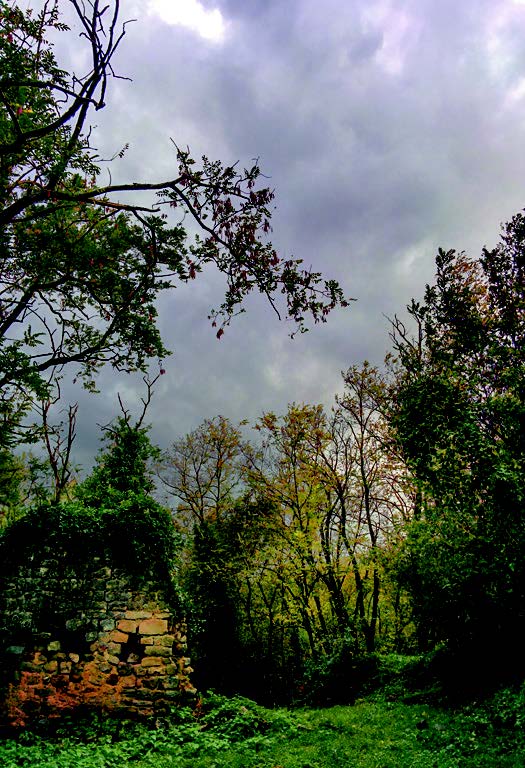
Memory Will Teach Us Something
This toolkit was created for teachers, activists, memory practitioners and others seeking resources for innovative educational approaches to addressing past human rights violations and divided memory between students from different communities. Memory Will Teach Us Something draws on the deep educational experience of the Monte Sole Peace Foundation in Italy, and is organized according to four key workshop sessions, each broken down into different activities that, together, aim to create understanding between students and promote critical engagement across multiple levels of memory: personal, familial, community and institutional. The toolkit also features guidelines on key factors for facilitators to consider when planning workshop sessions and notes on suggested materials and timeframes for activities. The authors encourage practitioners to adapt the exercises as needed according to the contexts in which they are working and have included room for notes and observations at the end of each section.
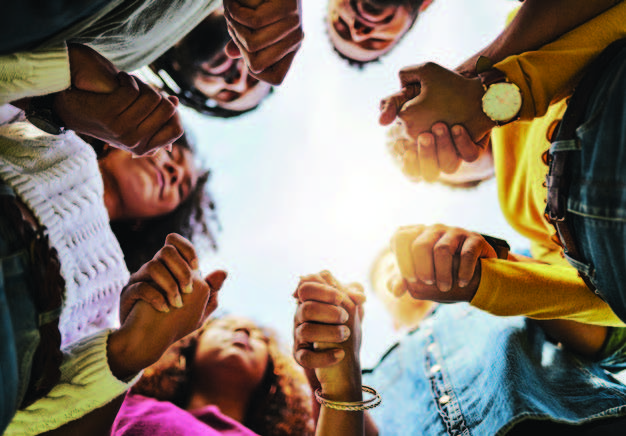
Strengthening Transitional Justice through Engagement with Religious and Faith-based Actors
This toolkit is the output of a project of the Global Initiative for Justice, Truth and Reconciliation and is driven by the understanding that involving faith-based organizations in transitional justice processes requires a proper analysis of their role and potential contribution. It has been informed by a set of case studies covering key contexts in which religious and faith-based actors participated in formal or informal transitional justice processes that sought to understand the impact of their participation, or lack of it, on these processes. Contexts comprised Guatemala, Northern Ireland, South Africa, Sri Lanka, Tibet and Tunisia. Additional input was sought from academic and practice literature from a range of other relevant contexts and multi-context research studies.
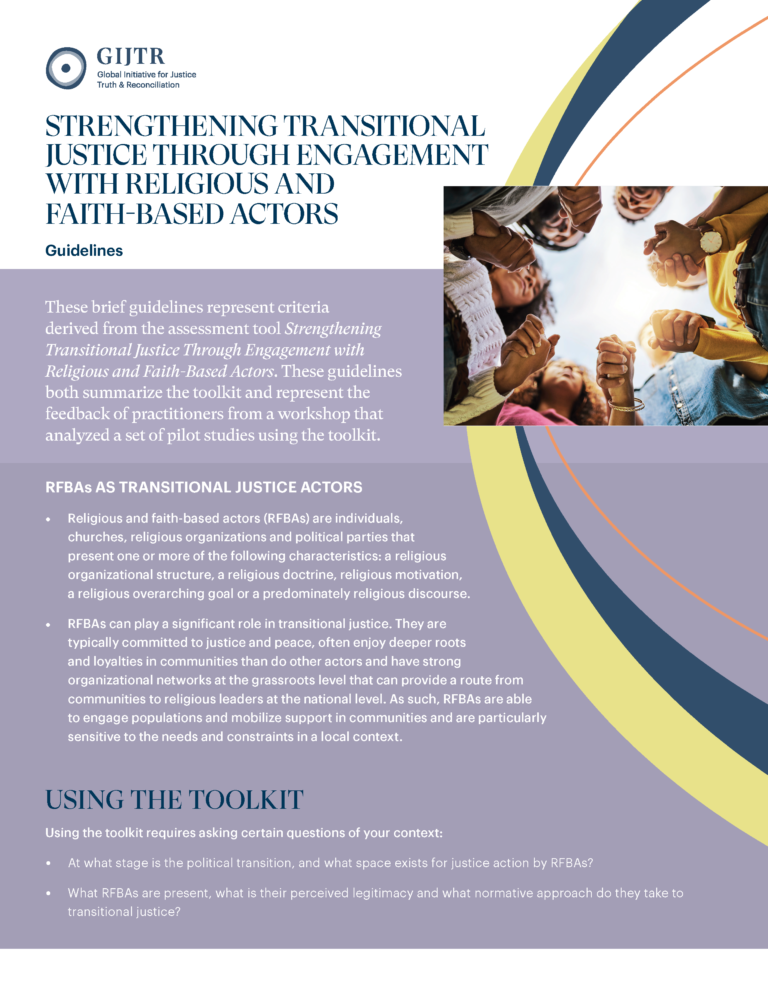
Strengthening Transitional Justice through Engagement with Religious and Faith-based Actors
Before using the assessment tool Strengthening Transitional Justice Through Engagement with Religious and Faith-Based Actors, we recommend reading these brief guidelines that both summarize the toolkit and represent the feedback of practitioners from a workshop that analyzed a set of pilot studies using the toolkit.
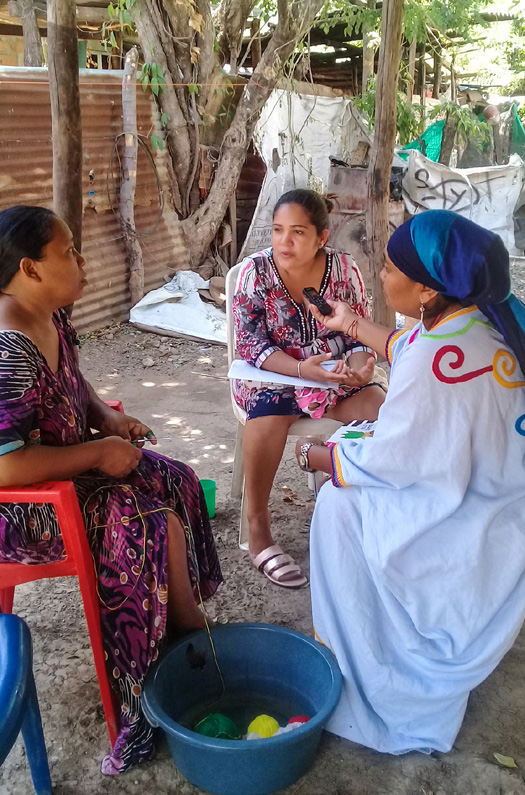
Living Archives
This document was developed as an instrument to support civil society organizations in Colombia in the development of oral archives and in the organization of their archival collections. It draws from the experience of GIJTR partners ICSC and PILPG, and ICSC members. This practical guide highlights basic principles in developing oral archives based on interviews, and in organizing human rights documentation archives. Section 1 focuses on the development of oral archives, and Section 2 offers basic advice on the first steps to help CSOs organize their archives.
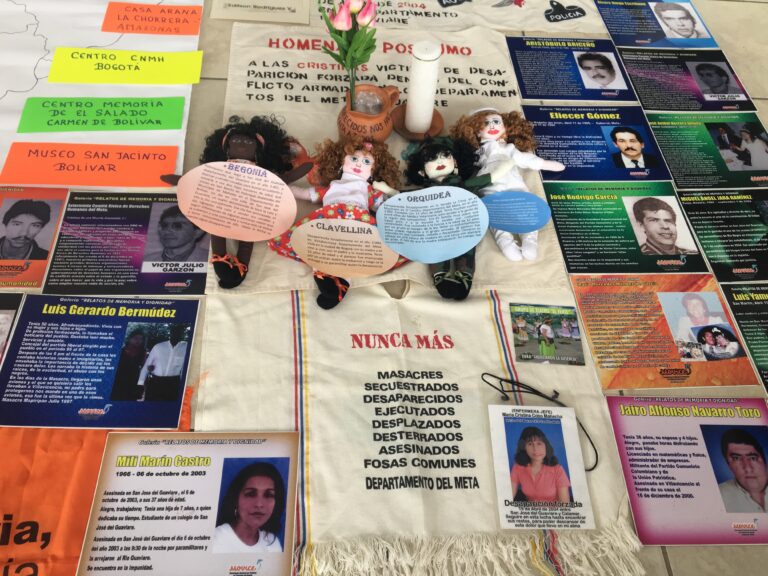
Transitional Justice and Indigenous Peoples in Latin America
This report shows both the limitations and the possibilities for constructive interaction between the field of transitional justice and the normative framework of Indigenous rights. Protracted armed conflicts in Criollo (mixed heritage) States gave rise to generic transitional justice experiences, devoid of Indigenous approaches; but in their application, the instruments of truth, justice, and reparation encountered the specificity of Indigenous experiences and rights and had to be transformed in varying degrees. Broadening the field of transitional justice potentially includes the understanding of, and action on, the continuing territorial dispossession and harassment of Indigenous peoples.
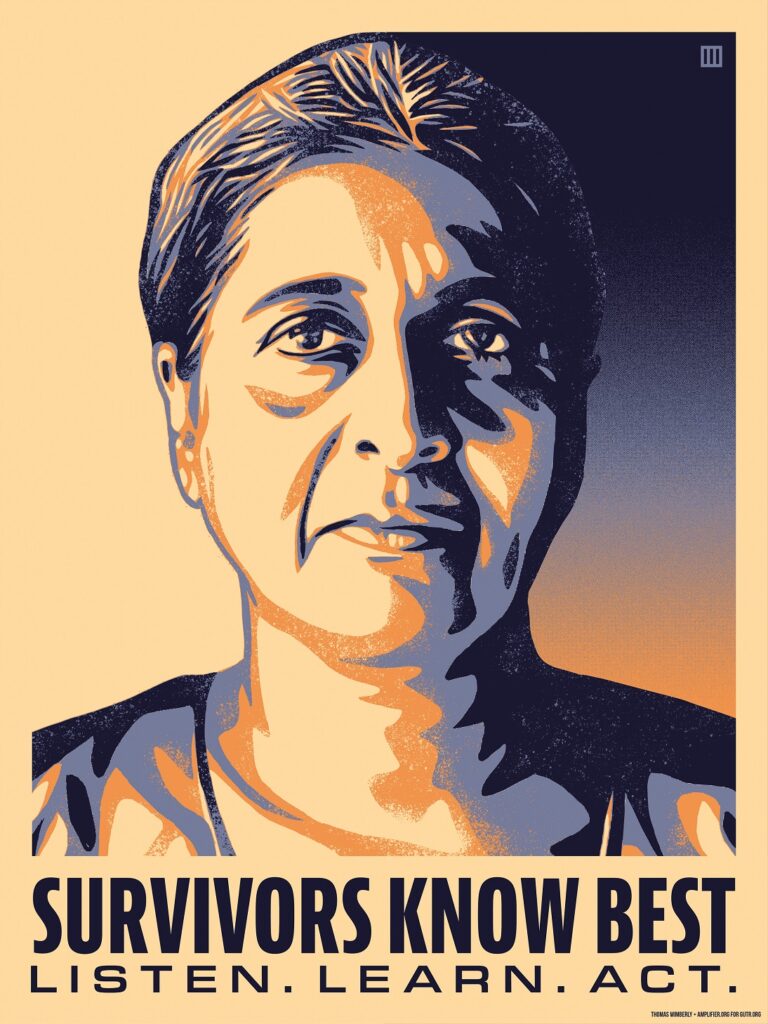
#SurvivorsKnowBest
In November 2021, the Global Initiative for Justice, Truth and Reconciliation (GIJTR) and Amplifier, a nonprofit design lab that brings together artists and activists, launched an advocacy campaign to assist communities around the world that are in or emerging from conflict by fostering reconciliation through the stories of survivors. With help from three artists, Camila Rosa, Thomas Wimberly, and Nurul Yaquin, we are making available 20 free, downloadable images in six languages to foster reconciliation through the stories of survivors. The images are based upon six primary themes - Listening to Survivors; Truth and Justice; Peace and Non-Recurrence; Memory and Reconciliation; the Missing and Disappeared; and Women’s Rights - and feature fictional people and symbols representing communities from Africa, Asia, Latin America, and the Middle East.
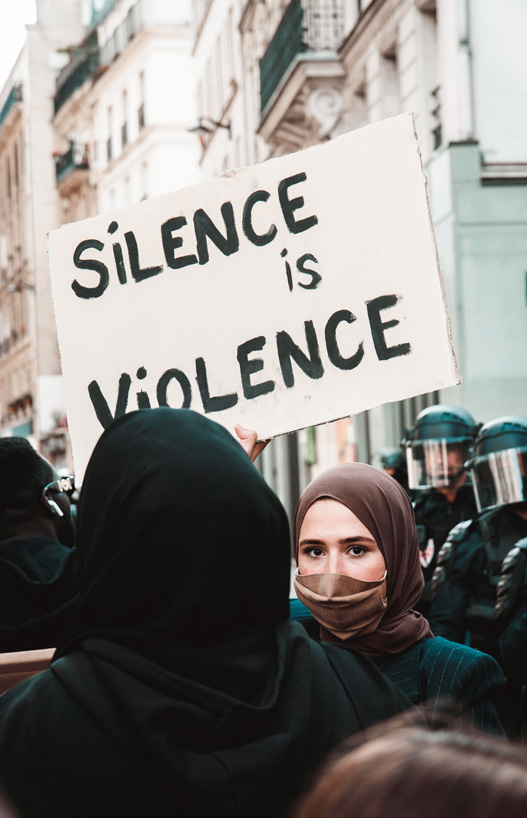
Make It New
Published in August 2021, this toolkit aims to support civil society generally, while explicitly accommodating the needs and contexts of the local partners that work with the Global Initiative for Justice, Truth and Reconciliation. In this sense, it pays particular attention to creating and sharing advocacy campaigns that amplify the voices of survivors and address the holistic needs of communities emerging from conflict. This toolkit also offers suggestions for navigating complications that are common in post-conflict settings, including security concerns and taboos around discussing painful histories. Intended as a concise guide, it provides general advice on developing, implementing, and launching advocacy campaigns.
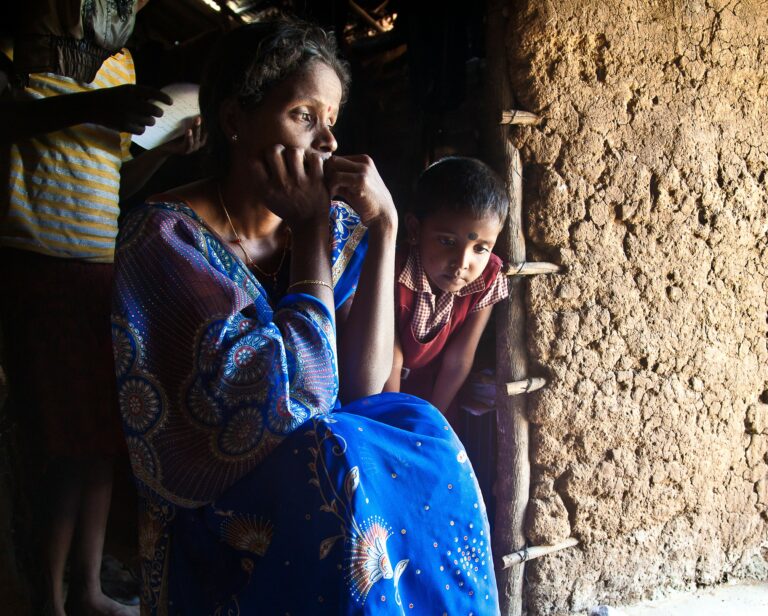
Providing Psychosocial Support for Survivors of Conflict
Published in 2021, this toolkit was compiled by the Centre for the Study of Violence and Reconciliation (CSVR), a GIJTR partner and an independent nonprofit organization working toward understanding violence, healing its effects and building sustainable peace and reconciliation in South Africa, the region and throughout the rest of the world. This involves engaging in targeted research and advocacy with civil society and state institutions (both nationally and regionally) and working with individuals and communities through the delivery of direct interventions.
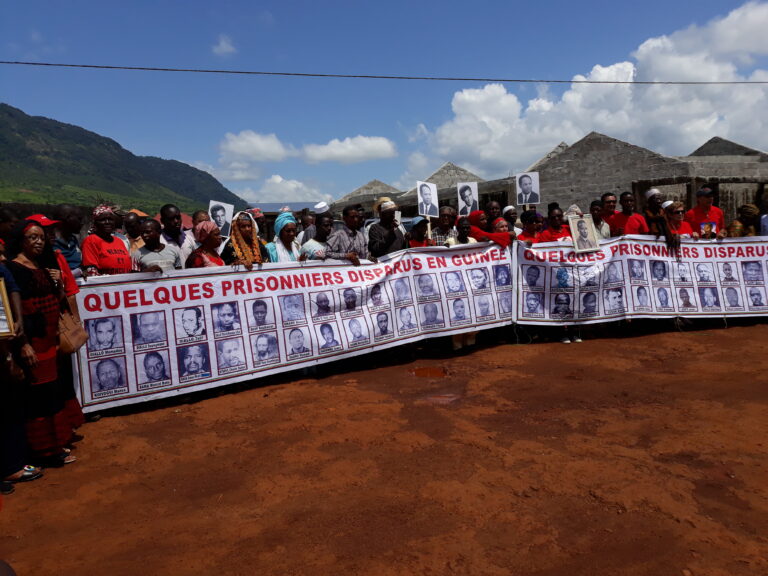
Creating an Advocacy Campaign
Published in August 2021, this toolkit was created for activists, memory practitioners, survivors and others seeking resources for turning memory into action through awareness-raising and advocacy. It was produced as part of the Global Initiative for Justice, Truth and Reconciliation’s (GIJTR) transitional justice programming in The Gambia. Creating an Advocacy Campaign draws on the deep advocacy experience of its author, Shirley Gunn, founder and director of ICSC member site Human Rights Media Centre in South Africa, and is organized by twelve key components that contribute to achieving advocacy objectives. The toolkit also features case studies from other contexts, including ICSC member sites’ memorialization-driven advocacy campaigns, and includes reflective writing prompts throughout.
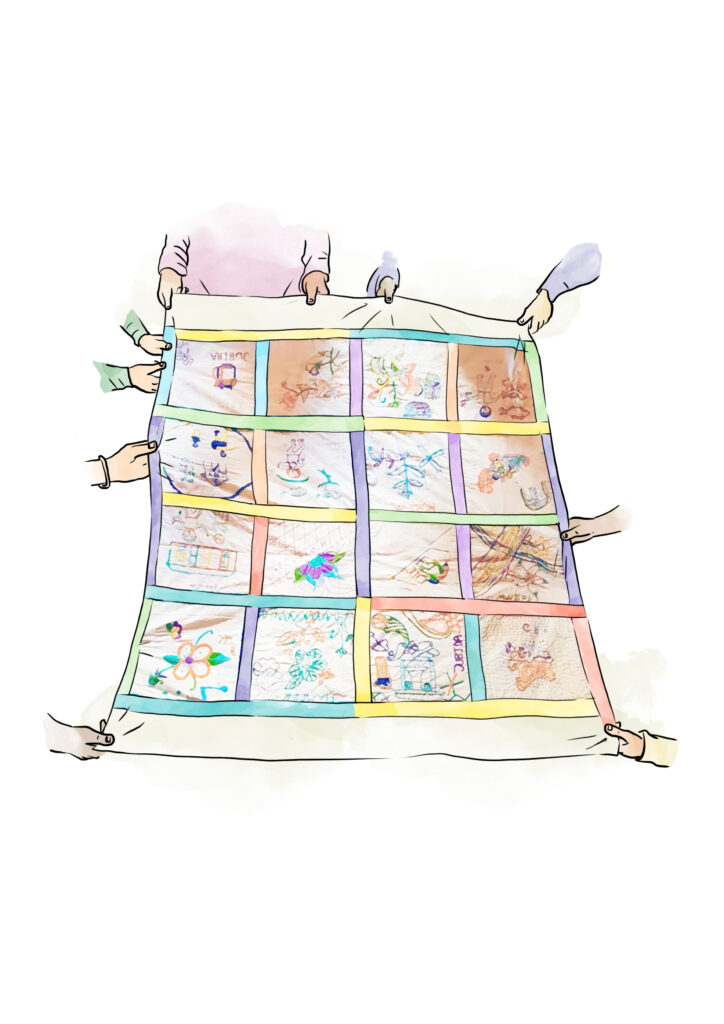
A Toolkit for Reintegration of Women Survivors of Conflict-Related Sexual Violence and Children Born of War
This toolkit draws on the extensive research conducted by GIJTR partners the International Coalition of Sites of Conscience (ICSC), Asia Justice and Rights (AJAR), Centre for the Study of Violence and Reconciliation (CSVR), Humanitarian Law Center (HLC), and Documentation Center of Cambodia (DC-Cam) as part of the Reintegration and Transitional Justice project. Both the project and the toolkit aim to promote greater recognition of the unique societal reintegration needs of survivors of conflict-related sexual violence and children born of war and highlight the importance of addressing the needs of these survivors within formal transitional justice processes and grassroots, community-based reintegration initiatives.
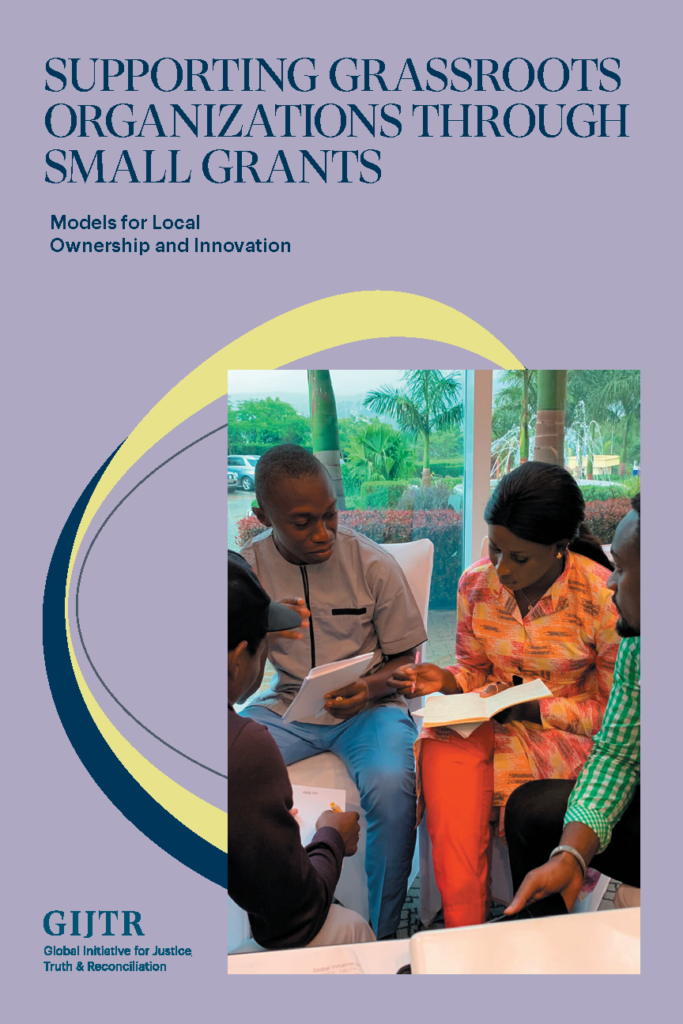
Supporting Grassroots Organizations through Small Grants
Central to GIJTR’s work is building capacities and laying the groundwork for community-wide participation in both formal and community-based transitional justice processes. This publication highlights the work of local organizations and activists who have received small grants to design and implement community-based interventions. Sub-grants provide a vital means for local partners to put into practice skills and knowledge gained through GIJTR programming while also providing a foundation to develop longer-term projects related to truth-telling, reconciliation, memorialization, forensics analysis and victims’ advocacy.
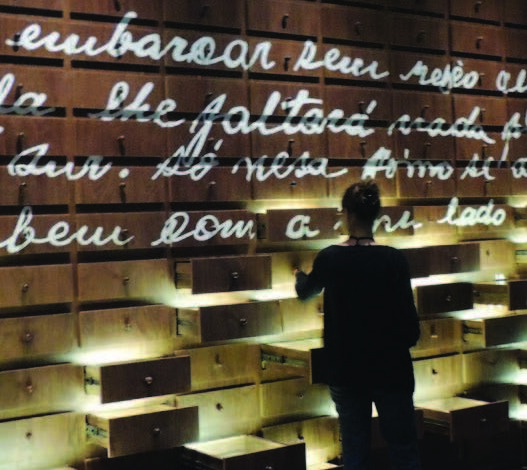
Peace Processes as Vehicles for Transitional Justice
This briefing paper presents lessons and recommendations as to how peace processes can best nurture and promote transitional justice. It is based primarily on the outputs of a remote workshop convened in November 2020 by Consortium partners Public International Law & Policy Group (PILPG), the International Coalition of Sites of Conscience (ICSC) and the Centre for the Study of Violence and Reconciliation (CSVR).
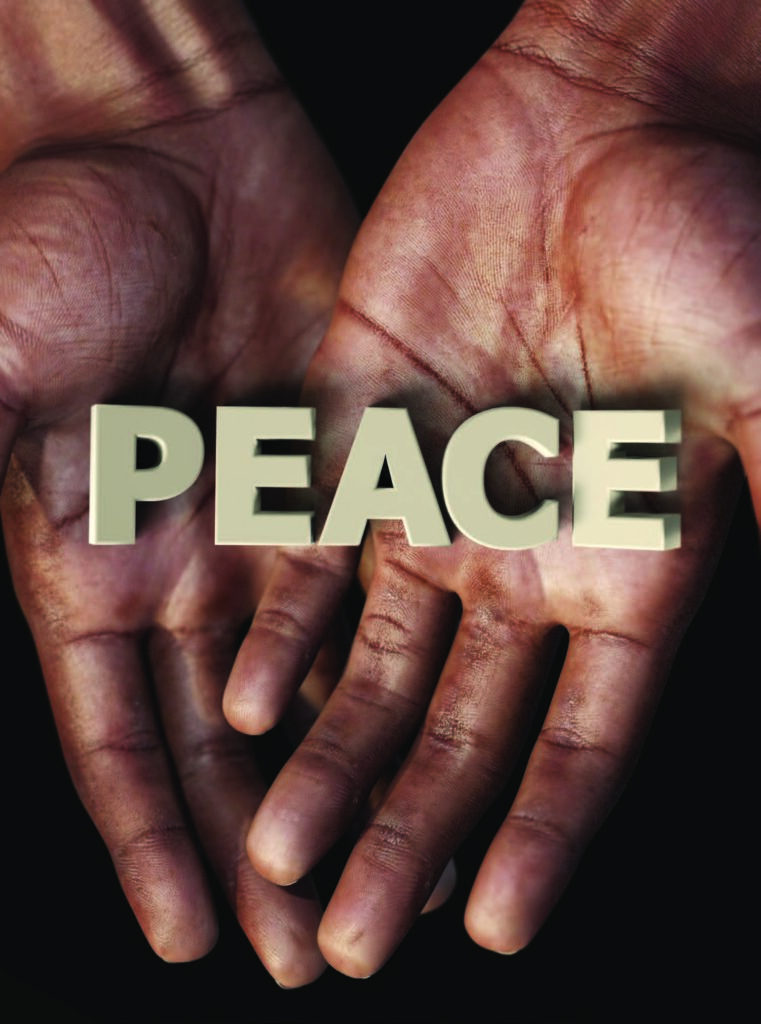
Locating Peace Within the Justice Agenda
This paper discusses the AUTJP as a policy case study that locates peace within the justice agenda on the continent, drawing from the rich, three-decade-long practice and experience of transitional justice processes on the continent to guide and inform future transitional justice processes. The parameters set by the policy within which peace and justice processes can co-exist and be pursued in transitional justice through timing and sequencing of the two processes will also be discussed. The paper will also analyse the benchmarks of success for peace processes, making use of African examples, and offering recommendations for future interventions.
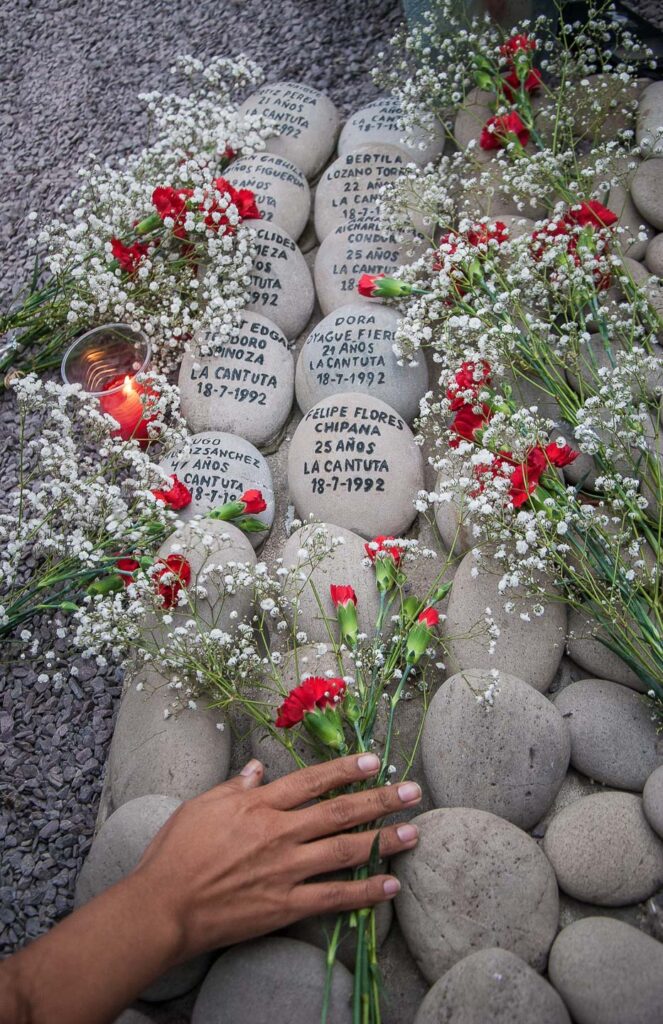
Roles and Responsibilities of the Private Sector in Transitional Justice Processes in Latin America
Roles and Responsibilities of the Private Sector in Transitional Justice Processes in Latin America: The cases of Colombia, Guatemala, and Argentina provides an overview of corporate complicity in the perpetration of grave human rights violations during some of the most notable periods of repression and conflict in those countries, and considers how the issue of private sector involvement has been addressed by both official and unofficial transitional justice mechanisms. This report presents lessons learned for the ongoing efforts to promote accountability, and considers the obstacles that remain.
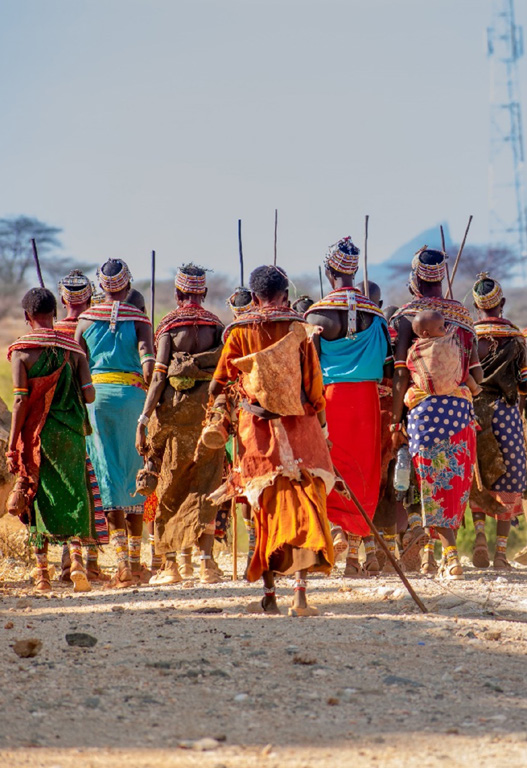
The Roles and Responsibilities of Private Sector Actors in Transitional Justice in Africa and Latin America
Released in September 2021, this briefing paper on The Roles and Responsibilities of Private Sector Actors in Transitional Justice in Africa and Latin America is part of a larger initiative led by the International Coalition of Sites of Conscience (ICSC), which seeks to examine past and present transitional justice processes involving private sector actors, with a focus on accountability for grave human rights violations and grassroots interventions across the two regions. Global Initiative for Justice, Truth and Reconciliation (GIJTR) Consortium partners, the American Bar Association Rule of Law Initiative (ABA ROLI) and the Due Process of Law Foundation (DPLF) contributed immensely to this project through the initial regional research on transitional justice processes in Africa and Latin America, which were released in separate publications earlier this year.
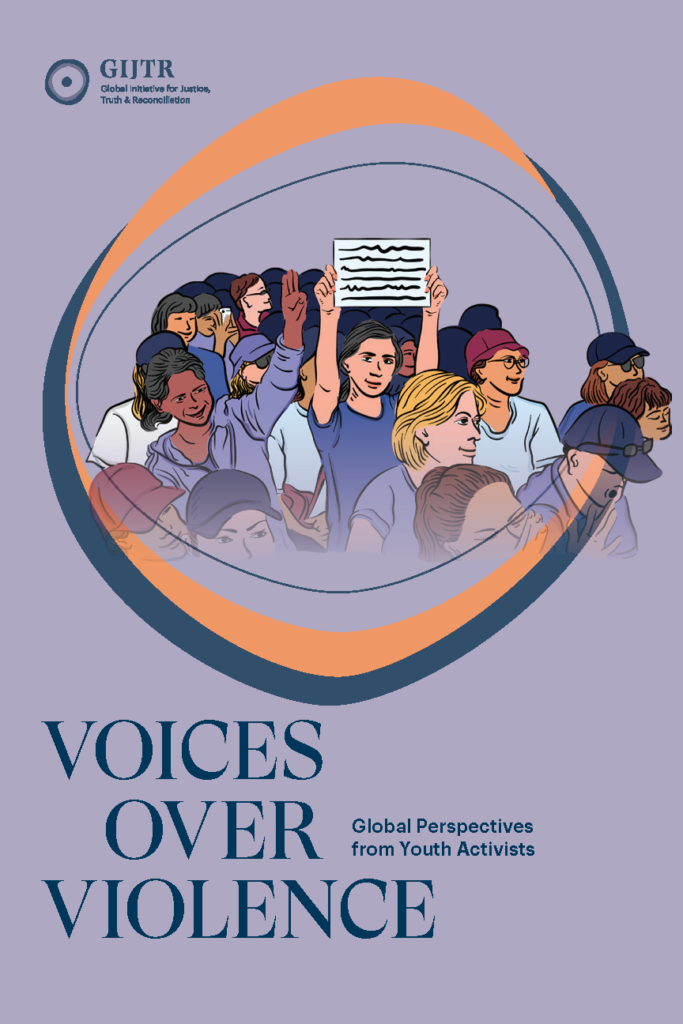
Voices Over Violence
This piece seeks to address a growing gap between the knowledge produced about youth and their role in atrocity prevention, and the actual knowledge production process. Youth are rarely provided with tangible opportunities to use their experiential knowledge to produce literature on the subject of youth engagement in atrocity prevention and transitional justice. Too often they are consulted but not brought into the decision-making process of how their contributions are then communicated. The community projects undertaken by members of GIJTR’s Youth in Atrocity Prevention Working Group, as well as the contents of this toolkit, are a testament to the wealth of knowledge and expertise youth have. Beyond detailing youth-driven strategies for engagement in atrocity prevention, the development of this toolkit was highly participatory, ensuring that each member of the working group was engaged at every decision-making point. From the toolkit’s title, to the chapter themes, to the illustrations, every decision was made by the working group members themselves.
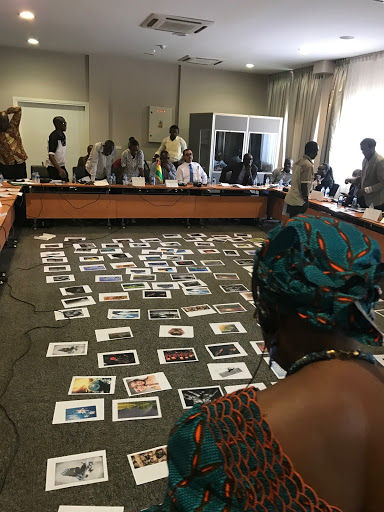
Strengthening Participation in Local-Level and National Transitional Justice Processes
This guide, Strengthening Participation in Local-Level and National Transitional Justice Processes: A Guide for Practitioners, was managed by the American Bar Association Rule of Law Initiative (ABA ROLI) with support from the Centre for the Study of Violence and Reconciliation (CSVR), International Coalition of Sites of Conscience, and the Public International Law & Policy Group (PILPG). Published in March 2018, the guide was produced as part of a year-long GIJTR project titled Community Participation, which aimed to increase the participation of communities to influence the design and implementation of transitional justice mechanisms. Tamil version: https://gijtr.org/wp-content/uploads/2021/10/Community-Participation-Toolkit_Tamil_live.pdf
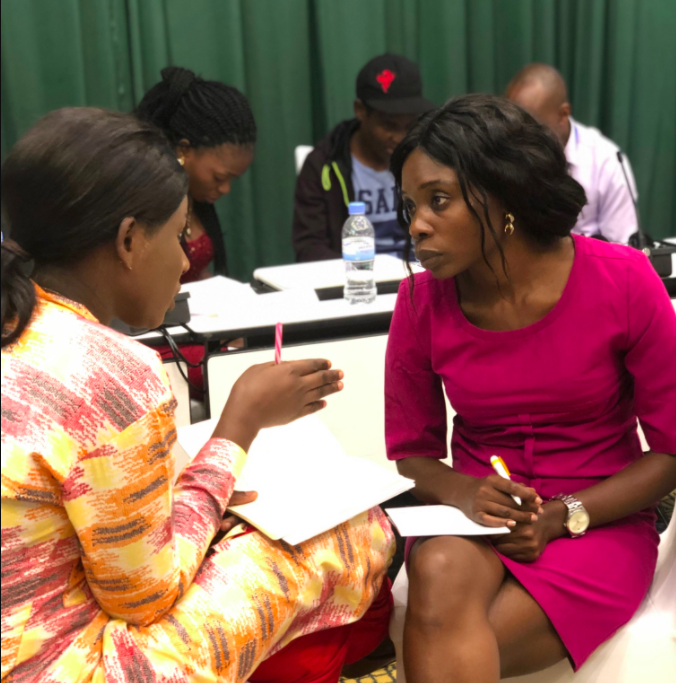
Transitional Justice and Women
This toolkit aims to explore the multiplicity of roles occupied by women during conflict and periods of authoritarian rule, as well as how these roles impact on women’s needs post-conflict; highlight the ways in which women have been involved in transitional justice processes and the impact of their involvement; investigate obstacles to the inclusion of women in transitional justice processes; and share recommendations from women-led grassroots organizations for meaningful inclusion of women in transitional justice processes. It considers a wide range of contexts, including Sierra Leone, The Gambia, Sri Lanka, Algeria and Guatemala.
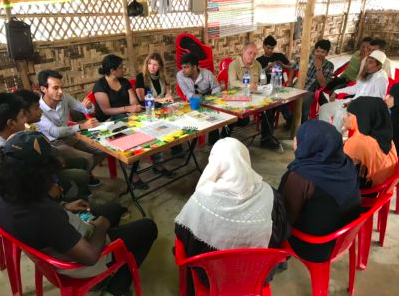
Understanding and Addressing Violations of Economic, Social and Cultural Rights in Transitional Justice
This assessment toolkit is designed for civil society organizations (CSOs) and activists who are working to address socio-economic and other root causes of conflict in post-conflict transitional justice processes at local and national levels. It provides users with the tools they need to conduct reliable and comprehensive research into the economic, social and cultural rights (ESCR) violations that contributed to and occurred during conflict and help them to work alongside and between local communities and national governments to make informed decisions about what transitional justice mechanisms might provide the most appropriate redress for those violations. This toolkit is available in English below, and also in Bahasa here: https://www.sitesofconscience.org/wp-content/uploads/2020/04/ESCR-Assessment-Toolkit-Bahasa-Indonesia.pdf
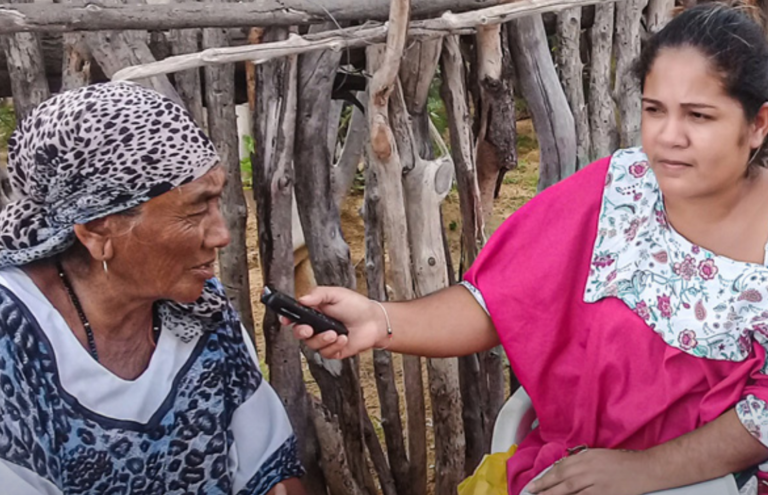
Civil Society Advancing Transitional Justice
Developing many of the themes in "Building a Learning Community," this follow-up publication examines GIJTR's work with civil society in a range of different types of transition - from states where wars have been won, but perpetrators remain close to power, to states seeking to address decades of authoritarian rule with few resources and little political will. Contexts explored include Colombia, The Gambia, Guinea, and Sri Lanka, among others.
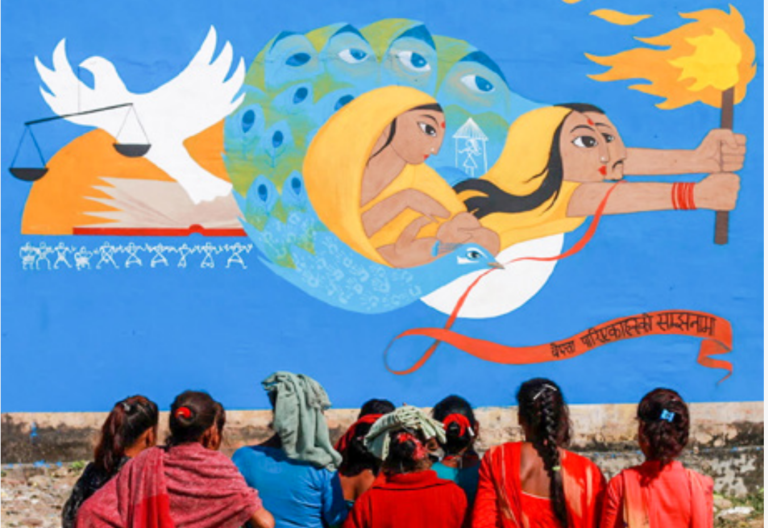
Lessons for a Holistic and Sustainable Approach to Transitional Justice
In this toolkit, the Global Initiative for Justice, Truth and Reconciliation shares its work ensuring that all members of society in countries transitioning from conflict or authoritarian rule – especially women and minorities – are included in envisioning and building new futures. Case studies from Colombia, South Sudan, Sri Lanka, Syria and elsewhere are included.
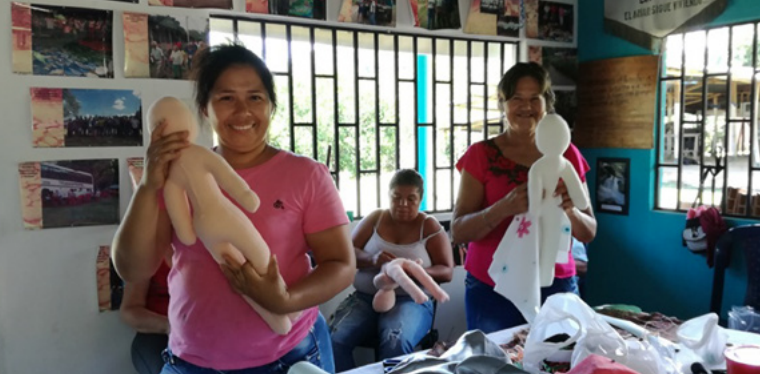
Community Truth-Telling in Outlying Regions in Colombia
"Creating Channels of Trust" offers a guide to conducting truth-telling projects in conflict and post-conflict settings by detailing the GIJTR's work in Colombia assisting those affected by the conflict there, which claimed the lives of over 200,000 people between 1958-2013. The toolkit shares best practices for collecting, documenting and sharing the stories of survivors of such conflicts.
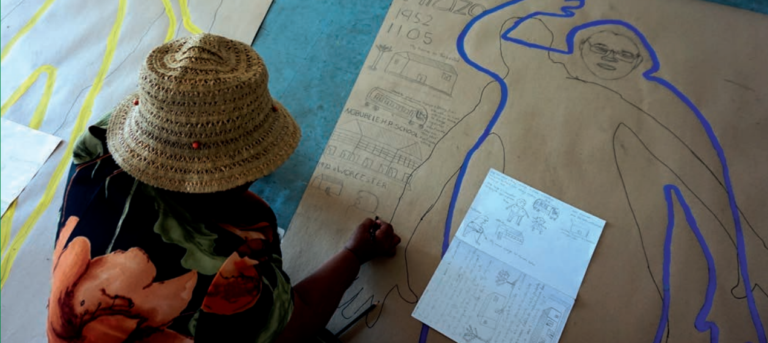
Psycho-Social Support for Survivors
Art methodologies provide an alternate language for survivors to capture the trauma of their experiences and creatively engage with the past while envisioning a new future. In this toolkit, Shirley Gunn, Director of the Human Rights Media Center in South Africa, offers a step-by-step guide to one such technique called body mapping, in which one tells a story through a life-sized drawing of her or his body.
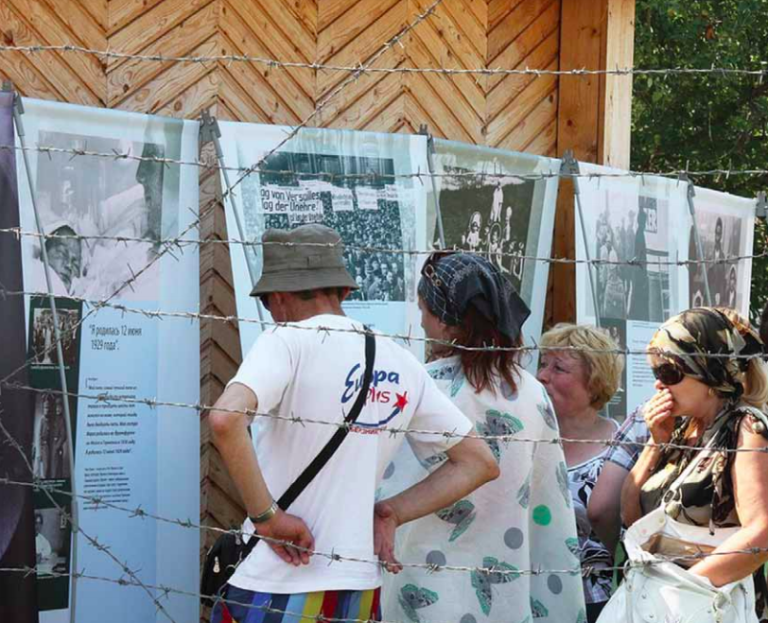
A Toolkit for Memorialization in Post-Conflict Societies
In all societies, we undertake memorial activities to preserve historical memory relating to traumatic events such as conflicts, genocide, famines, the plague, the aftermath of a great humanitarian crisis, etc. This manual draws on the work of Sites of Conscience - historic sites, history museums and memory initiatives that connect past struggles to today's movements for social justice - to provide inspirational, innovative and informative examples of memorialization that highlight the ways memory in the post-conflict world can be used to forge more peaceful futures.
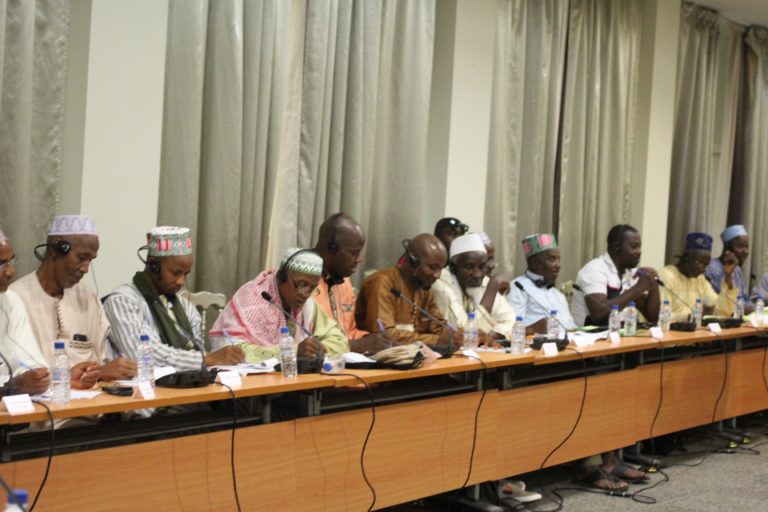
Violence and Prevention Dialogue Toolkit
Effective communication is essential if communities around the world are to address challenging histories and build more just and peaceful futures. This toolkit shares strategies for facilitating dialogues that bring individuals, organizations and communities together for the purposes of individual and collective learning. The information is drawn from the firsthand experience of the International Coalition of Sites of Conscience, and focuses on the importance of a nuanced understanding of cultures and local situations by incorporating lessons learned from civil society organizations (CSOs) and teachers across Guinea and the Côte d’Ivoire. Also available in Arabic: https://gijtr.org/wp-content/uploads/2021/08/Violence-and-Dialogue-Toolkit-6x9-AR-final.pdf
